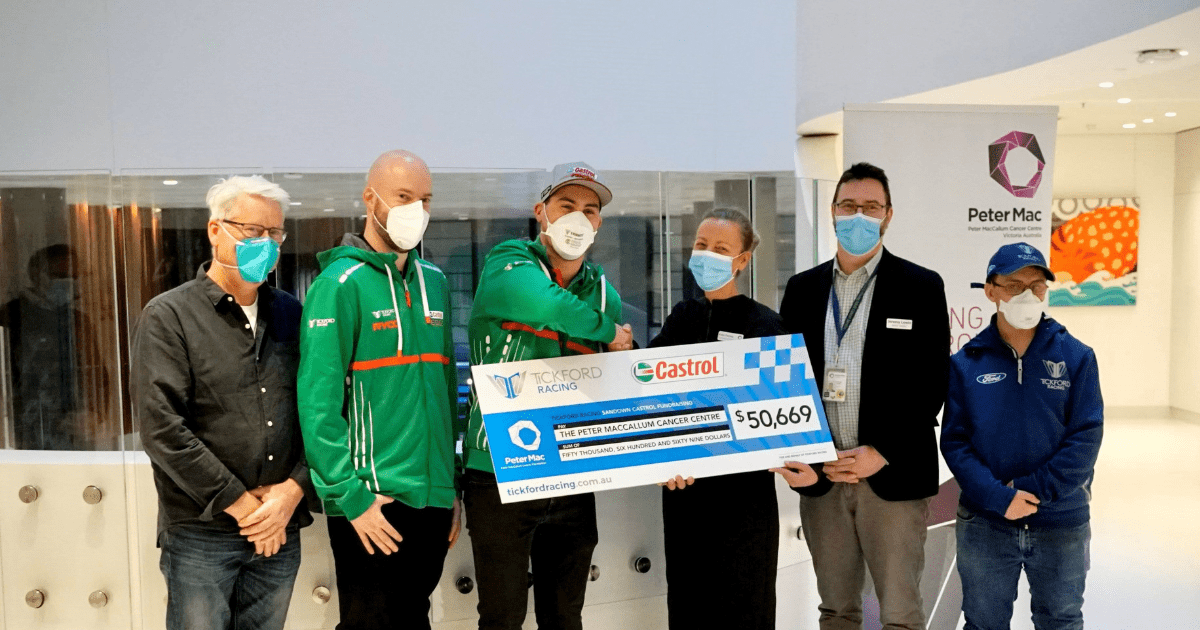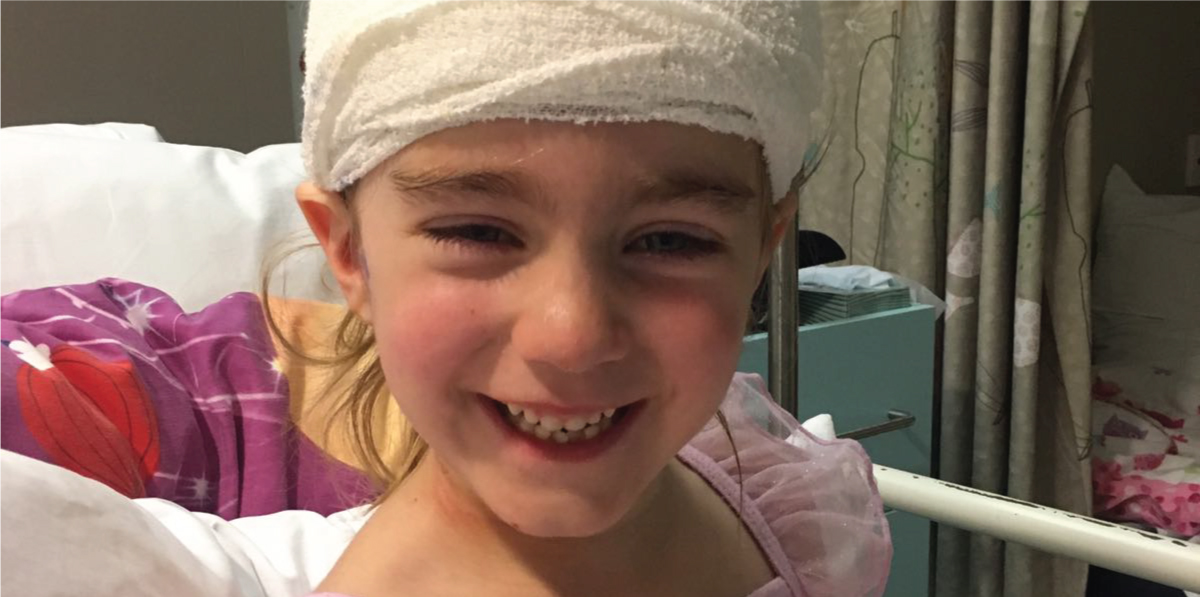A/Prof Ben Tran's research on testicular cancer
3 min read 31 January 2023
A/Prof Tran wants to help people live better lives after cancer
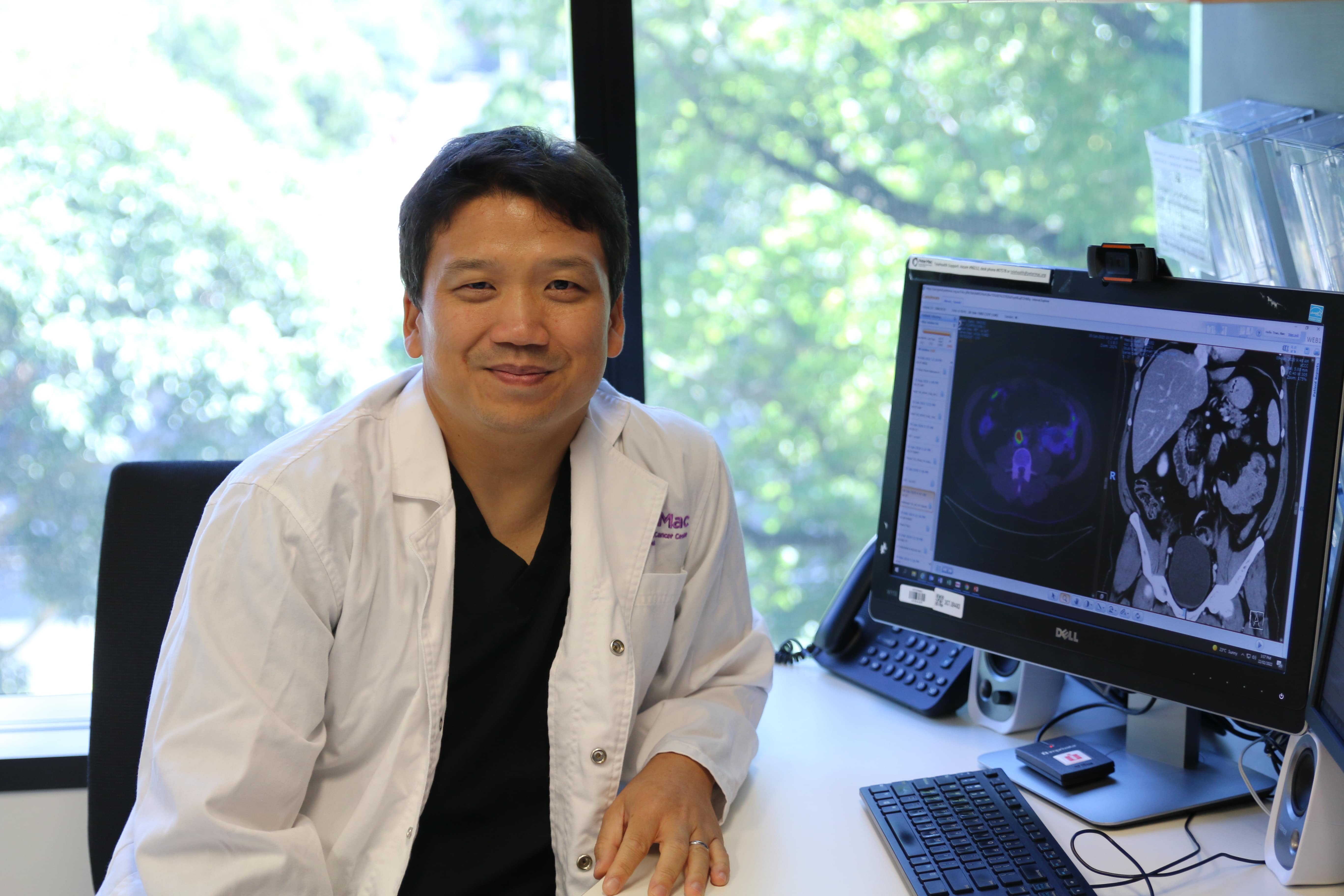
In Australia, it’s estimated that 850 - 1,000 men were diagnosed with testicular cancer last year.
Associate Professor Ben Tran is a world-leading researcher in testicular cancer, and runs several international research projects looking into new ways to save lives from this devastating disease.
His research focuses on not only finding kinder and gentler treatments for people with testicular cancer, but also managing patients who have completed their treatment and improving their quality of life as they recover from cancer.
I want to be able to see patients improve, I want to see them be cured of testicular cancer, and I want to see them live long, healthy lives with their families.
As a clinical researcher and practicing oncologist, A/Prof Tran is acutely aware of the suffering that cancer inflicts on both the person going through it and their loved ones, and is passionate about reducing this suffering.
A/Prof Tran is one of the many talented researchers working at Peter Mac today, and it’s thanks to supporters like you that life-saving research work like his is possible.
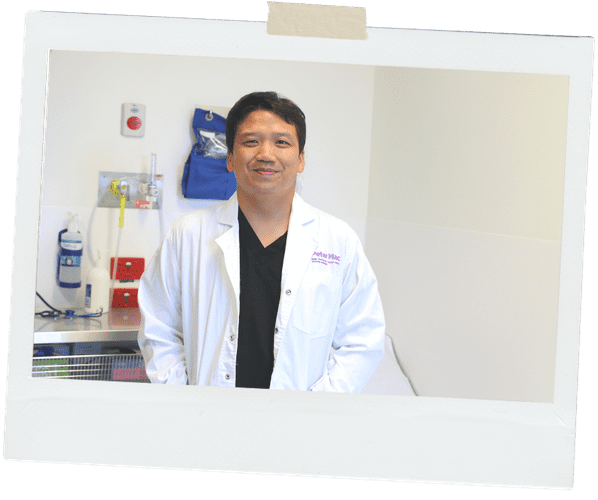
Improving the quality of life for testicular cancer patients
Currently, testicular cancer is the most commonly diagnosed cancer among young men aged 20 to 39. Thankfully though, due to past research, testicular cancer has been proven to be highly treatable with patients having a 95% chance of surviving beyond 5 years after their initial diagnosis.
However, for A/Prof Tran, there is still much work to be done in the field of testicular cancer research, particularly around improving the quality of life of patients after their treatment.
Even though we can cure these patients, it’s still really important that we continue researching into testicular cancer so we can optimise the quality of life in these men so they can not only live long lives, but long healthy lives, and not suffer the consequences from the treatment or the long-term effects of the cancer itself.
- A/Prof Tran
Typically, treatment for testicular cancer involves the removal of the affected testicle through surgery followed by chemotherapy to remove any lingering traces of the cancer.
However, even after the successful treatment and remission of their cancer, testicular cancer patients can still potentially experience long-term side effects from their cancer that will continue to affect them for many years to come. As most testicular patients are young men, those affected will often have to live with the consequences of their diagnosis for several decades and will require long-term monitoring to ensure that their cancer doesn’t return.
The diagnosis itself and the treatments we offer currently can really impact patients in both the short and long term. There are potential effects such as reduced fertility, sexual problems, hormonal problems, secondary cancers, cardiovascular disease and lung problems.
- A/Prof Tran
Through his research, A/Prof Tran is determined to develop new treatments and tests that will protect patients from unnecessary side effects, while also giving them peace of mind for the future.
Reducing unnecessary pain and additional surgery
According to A/Prof Tran, a major challenge in the current treatment of testicular cancer involves the discovery of residual tumours left in a patient’s stomach.
Unfortunately for these patients, who are already drained and exhausted from their initial course of treatment, currently the only way to identify if these tumours are cancerous or not is through further surgery, an invasive course of action that can further disrupt a patient’s life.
When testicular cancer patients complete chemotherapy there’s sometimes tumour left in the stomach. This has to be removed with surgery.
But only 40% of these surgeries find remaining cancer – the rest are harmless masses or scar tissue, and this means that there was no threat to the person’s life. So almost two thirds of these life-altering surgeries are happening because there currently isn’t a way of identifying if what’s left behind after chemo is cancer, or scar tissue.
- A/Prof Tran
That’s why a major focus of A/Prof Tran and his team’s research is around developing a new type of blood test that will allow doctors to determine whether that tumour is cancerous or not.
If successful, this non-invasive blood test will let patients and their doctors know if their chemotherapy has been successful, if they have been cured, or whether they need further surgery to save their lives. This will potentially save thousands of testicular cancer patients by identifying those who can safely be spared further surgery, and therefore avoid additional pain and a prolonged recovery time.
The blood test my team and I are developing will show whether cancer is present or not. If it’s not, then the patient won’t need further surgery. This could remove the need for post-chemo surgery for up to 60% of patients.
- A/Prof Tran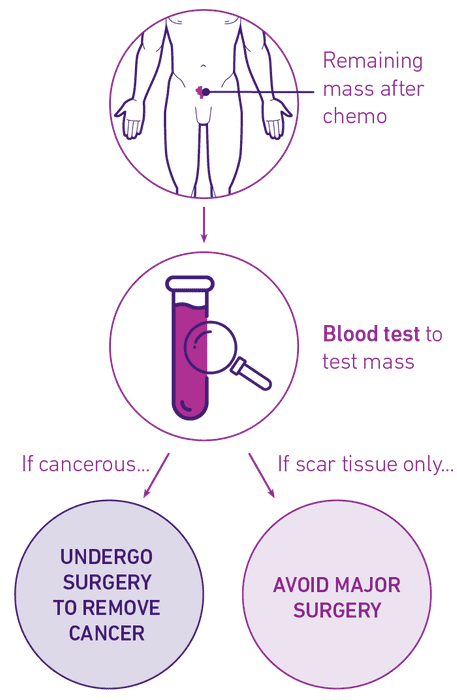
A/Prof Tran hopes that the findings from this project can be broadly applied – helping diagnose post-chemotherapy tumours in testicular cancer patients – within the next few years.
Giving patients a life free from fear and anxiety
For many cancer survivors, a major source of fear and anxiety is that their cancer can one day – suddenly and unexpectedly – return, deadlier than ever.
Right now, the only course of action available to testicular cancer survivors is to undergo regular scans and monitoring to assess the likelihood of a cancer recurrence. This is a process that can dredge up those feelings of fear and anxiety each time a scan or test is scheduled.
Many cancer survivors have commented on the difficulty of planning for a future when such a fear exists.
Thankfully, another research project A/Prof Tran is working on aims to save people from this uncertainty and give them back their future.
Together with his team of researchers, A/Prof Tran is developing a blood test to help doctors predict the likelihood that cancer will return in their patients.
Currently we monitor patients for up to 10 years, using scans and ongoing testing so we can act quickly if cancer returns. This blood test would identify patients who are more likely to have their cancer return, and could reduce some of the ongoing monitoring for those patients who have a lower likelihood of their cancer returning.
- A/Prof Tran
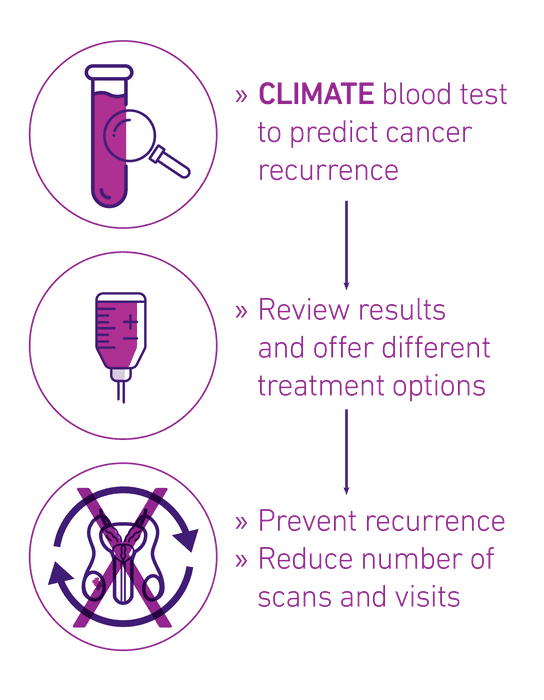
It’s an exciting research project that could open up a variety of new options for doctors and have a huge impact on those affected by cancer.
By developing this blood test and learning how likely it is a person’s cancer will return, doctors can offer different treatments, tailored follow-up scans depending on the patient’s risk, and hopefully reduce the fear that cancer will return for many
- A/Prof Tran
Thank you for your support
A/Prof Tran is just one of the many researchers at Peter Mac whose work is made possible through support like yours, something he is extremely grateful for.
Read A/Prof Tran's letter to Peter Mac supporters below:
I'm hoping that soon, all cancers are potentially curable. And that we're focusing on helping patients to live long, healthy lives once they're cured. I hope I can do that for all my patients.
Unfortunately, without further funding for cancer research we are stuck dreaming.
These research projects are so close to being translated into the new gold standard of patient care. With the right funding, these projects could be helping patients in the next few years.
You're making a difference to what we want to do as researchers and, more importantly, you're making a real difference to patients. Thank you.- A/Prof Tran

Your kind support gives us all hope for discovering more life-saving cures and building a cancer-free future. Thank you.

